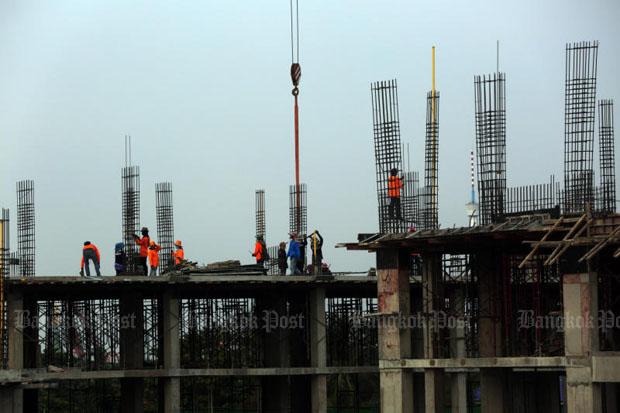Thailand: Residential developers cautious on investment
Residential developers remained cautious on investment in the third quarter amid low consumer confidence and slowed economic activities, according to a survey by the Real Estate Information Center (REIC).

Surachet: Sluggish economy in Q3
The centre reported that the housing developer’s expectations index dropped to 61 points in the third quarter from 67 in the second, showing weaker confidence in revenue, presales, investment, employment and new project launches.
The lower confidence might be derived from the expectation that economic activities will slow in the early fourth quarter, while development costs might increase.
The index also suggested that developers’ confidence on presales slightly dropped to 53.1 points from 53.7. The decrease was in line with the consumer confidence index, which remained low due to concerns over the current economic situation.
But developers were more confident in revenue in the third quarter as the sentiment index on revenue increased to 53.4 points from 45.4 in the second quarter.
“This reflects that developers’ adjustments were fruitful. They shifted to investing in the upper-end segment,” the report said. “Developers also remained confident in residential demand as sentiment index on demand slightly rose.”
For new project launches, the sentiment index also declined to 59.3 from 60.4, impacting employment, for which the index decreased to 56.2 from 57.4.
REIC reported that developers remained positive on investment in new projects, albeit more cautiously. They focused on projects in a segment where demand and purchasing power were strong.
But the housing developer’s sentiment index rose slightly to 54.8 in the third quarter from 53.1 in the second quarter.
Developers’ confidence in development costs rose from 40.1 to 45, as prices for construction materials rose, especially cement, which saw higher demand.
Surachet Kongcheep, associate director of property consultant Colliers International Thailand, said the overall economy in Thailand had not recovered but showed positive signs several months ago with growth in export and tourism arrivals.
“The overall economy was still sluggish. People did not feel the economy had improved despite what the government claimed,” he said. “Many businesses struggled, like the retail sector, which faced decreasing income among tenants.”
In the office sector, a sluggish economy had a minimal impact as a leasehold contracts were long-term, with advanced bookings of office space throughout the year. Demand for office space remained strong but will be challenged by a large amount of new supply in the future.
At least 500,000 square metres of office space is scheduled for completion in the next few years, which might have an impact on average rents.
In the condominium sector, most projects launched in the third quarter were along new mass transit lines and extensions where developers introduced units priced 70,000-130,000 baht per sq m. This price range was suited to Bangkok’s purchasing power.
The average take-up rate for condominiums in Bangkok was 77%, with more than 36,000 units remaining for sale.
Of this unsold amount, 55% were priced 50,001-100,000 per sq m.
Source: https://www.bangkokpost.com/business/news/1347954/residential-developers-cautious-on-investment


 Thailand
Thailand




